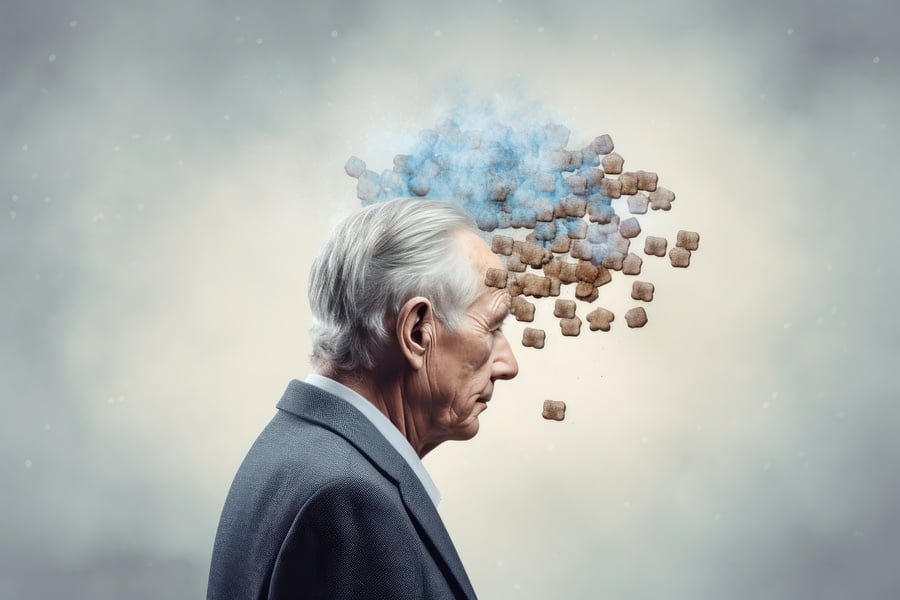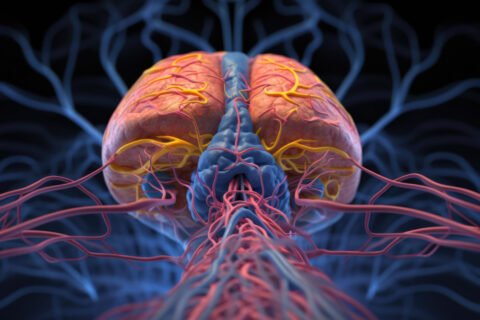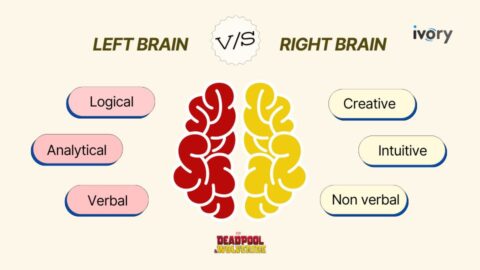Medically Reviewed by:
Khushal Girigosavi, a peer reviewer at the Cureus Journal with numerous research papers to his name, maintains high standards in medical research.
Imagine a world where the memories that shaped you, the faces that brought you joy, and the stories that defined your life slowly fade away. It is a world of confusion, frustration, and uncertainty that nobody wishes to enter. Yet, for many Indian seniors, this reality becomes their everyday existence as they battle with a condition called dementia.
Dementia is not just a single disease, but rather an umbrella term for a range of neurological disorders that affect memory loss, thinking, language, and behavior. It is estimated that over 5.3 million elderly individuals in India are living with dementia, and this number is expected to double by 2030. These statistics may seem overwhelming, but knowledge is power. By understanding what dementia is and its causes, we can empower ourselves to navigate this complex journey with our loved ones.
In this blog post, we will explore the comprehensive overview of dementia’s symptoms and causes. We will delve into the different types of dementia and how they manifest in cognitive decline. From Alzheimer’s disease to vascular dementia, each form presents its own unique set of challenges. By understanding these variations, we can equip ourselves with the tools necessary to identify early warning signs and seek appropriate treatment.
What is Dementia? A Comprehensive Overview of Symptoms and Causes
Dementia is a neurological disorder that affects cognitive abilities and memory. By recognising the signs of cognitive impairment and familiarising ourselves with different types of dementia, we can better support individuals affected by this condition. Dementia is not a normal part of ageing. It is a condition characterised by a decline in cognitive abilities that affects daily functioning.

Dementia in Indians: Understanding Cognitive Decline in Indian Seniors
As we age, it’s common to experience some changes in our memory and cognitive abilities. However, when these changes become more pronounced and start affecting our daily lives, it could be a sign of a neurological disorder known as dementia. In Indians, the prevalence of dementia has been on the rise due to an ageing population. It is crucial to understand what neurological disorders in Indians such as dementia are, their symptoms, and their causes to better support our loved ones or ourselves if affected by this condition.
Cognitive Impairment: Recognising the Signs
The first step in understanding dementia is recognising the signs of cognitive impairment.
Memory loss is often one of the most noticeable symptoms. It may start with forgetting recent events or conversations and progress to forgetting important dates or names. Difficulty with problem-solving and decision-making can also be observed, making simple tasks more challenging.
Some other symptoms include:
- Confusion: Feeling disoriented or having trouble following familiar routines.
- Language problems: Struggling to find the right words or understand others.
- Impaired judgment: Making poor decisions or experiencing changes in behaviour.
- Difficulties with daily tasks: Challenges with basic activities like dressing, eating, or bathing.
Explore cognitive age tests designed to unlock your mental capabilities, offering personalised insights for a sharper, more focused, and resilient mind. Your cognitive wellness journey starts here!
Types of Dementia: Exploring Neurological Disorders
Dementia is not a single disease but rather an umbrella term for various neurological disorders that cause cognitive decline.
Claim: Alzheimer’s and dementia are interchangeable terms.
Fact: False. While related, Alzheimer’s disease and dementia are not interchangeable. Alzheimer’s is a specific type of dementia, representing the majority of cases. Dementia is an overarching term encompassing various cognitive impairments, with Alzheimer’s being just one of several possible underlying causes. Understanding this distinction is crucial for accurate diagnosis and tailored care strategies for individuals affected by these conditions.
1. Alzheimer’s Disease: The most common type of dementia is Alzheimer’s disease, accounting for about 60-70% of cases. It is characterised by the buildup of amyloid-beta plaques and tau tangles in the brain, leading to the gradual deterioration of cognitive functions. To simplify, Alzheimer’s is caused by the accumulation of certain proteins in the brain, leading to the death of brain cells. The initial symptoms often include difficulty remembering recent events or conversations, confusion, and changes in mood or behaviour.
2. Vascular Dementia: Vascular dementia is the second most common type and occurs due to reduced blood flow to the brain, often caused by strokes or other cerebrovascular diseases. The symptoms develop sudden in onset and vary depending on the area of the brain affected but typically include problems with attention, planning, and organization. Memory is affected late during the course of Vascular Dementia.
3. Lewy Body Dementia: This type of dementia involves the presence of abnormal protein deposits called Lewy bodies in the brain. It shares symptoms with both Alzheimer’s disease and Parkinson’s disease, including visual hallucinations, fluctuations in alertness and attention, and tremors. If cognitive and motor dysfunction occurs within 1 year, it is considered as Lewy Body Dementia. Otherwise considered to be Dementia secondary to Parkinson disease.
4. Frontotemporal Dementia: Frontotemporal dementia primarily affects the frontal and temporal lobes of the brain. It often manifests early as changes in personality, language difficulties, and impaired social behaviour. Memory loss may not be prominent in the early stages. It may also be associated with Movement Disorders.
5. Mixed Dementia: Some individuals may have multiple types of dementia simultaneously, known as mixed dementia. It can occur when different pathologies coexist in the brain, such as Alzheimer’s disease and vascular dementia.
Understanding the Causes: Unraveling the Mystery
While the exact cause of dementia remains unknown, researchers believe that a combination of genetic, environmental, and lifestyle factors plays a role in its development. Additionally, chronic conditions like diabetes, high blood pressure, and heart disease have been linked to an increased likelihood of developing dementia. Reversible cases of Dementia are caused by underlying hypothyroidism, vitamin B12 deficiency, advanced Syphillis and even Depression among a few other causes.
In some cases, it can be caused by underlying medical conditions such as Parkinson’s disease or Huntington’s disease. Other times, it may result from damage to brain cells due to strokes or head injuries.
Genetics also play a role in dementia. Some individuals carry certain genes that increase their risk of developing the condition later in life. However, it’s important to note that having these genetic markers does not necessarily mean someone will develop dementia.
Age is another significant risk factor. The likelihood of developing dementia increases with age, with the majority of cases occurring in individuals over 65 years old. This is why older adults must prioritise brain health through activities that stimulate the mind and promote overall well-being. By adopting a healthy lifestyle that includes regular physical exercise, maintaining social connections, and engaging in mentally stimulating activities, we can potentially reduce the risk of cognitive decline.
While there is no cure for dementia, early diagnosis and intervention can greatly improve the quality of life for those affected. This includes implementing strategies to help manage symptoms, providing assistance with daily tasks, and offering emotional support to both the person with dementia and their caregivers.
Did you know?
Engaging in activities that stimulate the mind, such as learning a new language or playing musical instruments, can contribute to cognitive reserve. Cognitive reserve is like a ‘brain savings account’ that helps individuals cope better with the effects of dementia. So, keeping your mind active can be a proactive step in promoting brain health and resilience.
Conclusion
In conclusion, understanding the symptoms and causes of dementia is crucial for both individuals experiencing cognitive decline and their loved ones. By gaining knowledge about this condition, we can navigate its challenges with greater empathy and find ways to improve the quality of life for those affected.
If you suspect that you or someone you know may be experiencing cognitive impairment, it is important to seek professional help. However, it is also important to remember that experiencing occasional forgetfulness or mild cognitive decline does not necessarily mean one has dementia. Age-related memory changes are common and can be influenced by various factors such as stress or medication side effects.
However, if you or a loved one are experiencing persistent cognitive difficulties that interfere with daily life, it is important to seek medical advice for a proper evaluation and diagnosis. There are various tests available that can provide a better understanding of your condition and guide you towards appropriate treatment options. Remember, early intervention can make a significant difference in managing dementia and preserving cognitive function.
Moreover, it is essential to remember that dementia is not a normal part of ageing. It is a neurological disorder that requires attention and support. By educating ourselves about dementia types and staying informed about available resources, we can play an active role in supporting individuals facing this challenge.
If you would like to learn more about dementia or need assistance in navigating through this journey, please visit Ivory. Our team of experts is here to provide guidance and support every step of the way. Remember, knowledge is power, and together we can make a difference in the lives of seniors living with dementia in India.




